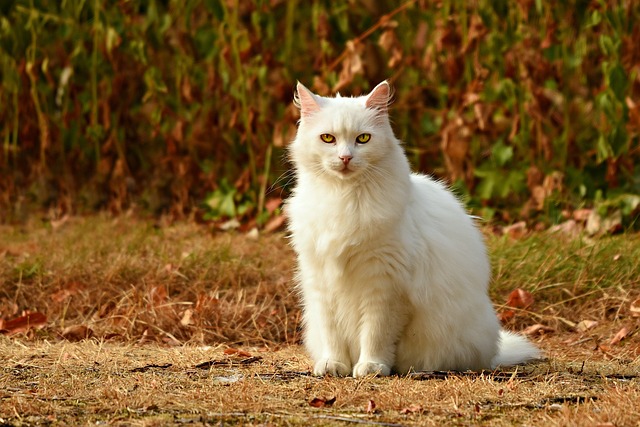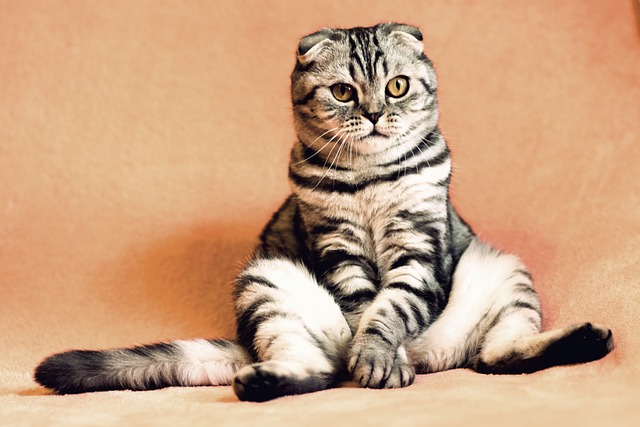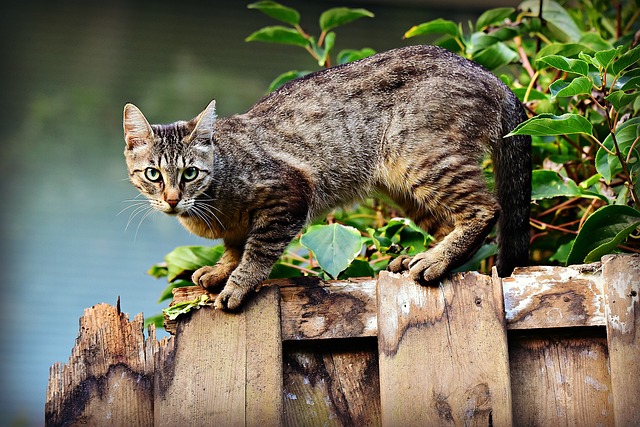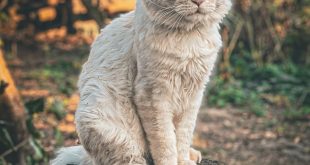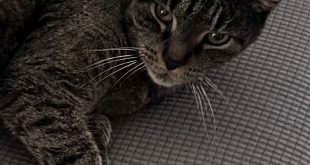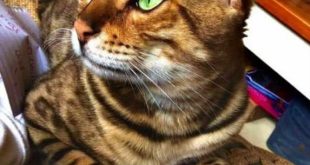Hay Guys! Don’t worry about that why cats vibrate? It seems like you’re referring to the phenomenon where cats exhibit vibrations, often associated with purring or other behaviors.
Cats can vibrate for various reasons, and it’s usually a normal and natural behavior. Here are some common scenarios where you might observe cats vibrating:
Contentment and Relaxation: One of the most widely accepted theories is that cats purr when they are content, relaxed, and comfortable.
Purring often occurs when a cat is resting, being petted, or enjoying a pleasant environment. This behavior may serve as a self-soothing mechanism, helping cats feel calm and safe.
Healing and self-healing: Another theory suggests that purring might have healing properties. It’s been observed that cats sometimes purr when they are injured or ill.
The vibrations produced during purring could have a therapeutic effect, promoting the healing of bones and tissues and potentially reducing pain and inflammation.
This may explain why cats often purr when recovering from injuries or surgeries.
Communication: Cats are known to communicate through a combination of vocalizations, body language, and scent marking.
Purring could be a form of communication, indicating to other cats or even humans that they are approachable, friendly, and non-threatening. Cats might purr to express their willingness to interact and engage with their surroundings.
Social Bonding: Mother cats often purr while nursing their kittens. This purring serves multiple purposes:
It helps the kittens locate their mother, provides comfort and warmth, and might even have a soothing effect on the kittens. As cats grow, they might retain this purring behavior as a way to maintain social bonds with other cats and their human companions.
Stress and Discomfort: While purring is generally associated with positive emotions, cats can also purr when they are stressed, anxious, or in pain. This could be an adaptive response to comfort themselves in distressing situations.
Why does my cat vibrate when breathing?
If your cat vibrates while breathing, it could be due to several reasons. On the other hand, sporadic vibrations from your cat might not be a cause for concern; however, persistent or severe vibrations require a veterinarian’s attention.
Here are a few potential reasons why your cat’s breathing time vibrates:
Purring: Cats often purr when they’re content, relaxed, or happy. It’s typical for cats to purr while breathing because purring is a type of vocalization that includes vibrations.
If your cat is breathing normally and seems relaxed, the vibrations could simply be due to purring.
Respiratory Distress: If your cat is experiencing difficulty breathing or is displaying other signs of respiratory distress such as open-mouth breathing, wheezing, coughing, or labored breathing, the vibrations could be a result of the effort they’re putting into breathing.
Infections, allergies, asthma, or other underlying conditions may be the cause of respiratory issues.
Congestive Heart Failure: In some cases, cats with heart issues might exhibit vibrations or bobbing motions in their chest while breathing.
Congestive heart failure can lead to fluid accumulation in the lungs, causing labored breathing and visible vibrations.
Other Health Issues: Various health conditions, such as upper respiratory infections, lung infections, or tumors, could lead to abnormal breathing patterns and vibrations.
If the cat’s breathing is accompanied by other concerning symptoms like lethargy, loss of appetite, or changes in behavior, it’s important to consult a veterinarian.
Muscle Tremors: Sometimes, cats can experience muscle tremors or twitches that might appear as vibrations when they breathe. Other underlying conditions or disorders of the nervous system could be the cause of these tremors.
Digestive Issues: In rare cases, abdominal discomfort or digestive issues could lead to visible vibrations in the cat’s chest or abdomen as they breathe. These vibrations might be a response to discomfort or pain.
Why is my cat’s throat vibrating?
If you’re observing your cat’s throat vibrating, it’s important to consider the context and any accompanying symptoms.
Cats There are many potential causes of vibration in the throat region, some of which may be normal while others may point to a health issue. Here are a few possibilities:
Swallowing or gagging: Cats might experience throat vibrations while swallowing, especially if they’ve just eaten or drank water.
Additionally, if your cat is attempting to clear something from their throat by swallowing or gagging, you might notice throat vibrations as a result.
Grooming Behavior: Cats often groom themselves by licking their fur. This grooming behavior can lead to the sensation of vibrations in the throat area, particularly if the cat is licking vigorously.
Tremors or muscle spasms: Cats, like all animals, can experience muscle tremors or spasms. These might be localized to the throat area and could create the sensation of vibrations.
Why do cats vibrate at night?
Cats may exhibit various behaviors at night that could include purring, grooming, playing, or exploring. If you’re specifically observing vibrations in your cat at night, it could be due to a few different reasons:
Playful Energy: Cats are crepuscular animals, meaning they are most active during the twilight hours of dawn and dusk.
If your cat is playful and energetic during the night, you might see them engaging in activities that involve jumping, pouncing, and rapid movements, which could create the sensation of vibrations.
Hunting Behavior: Cats have a natural instinct to hunt, and even domestic cats might exhibit hunting behaviors at night.
If your cat is stalking, chasing, or “pouncing” on imaginary or real prey, these actions might result in vibrations as they move their body in preparation for a “hunt.”
Dreaming: Cats, like many animals, dream during their sleep. You might notice some muscle twitches or subtle movements during your cat’s dream states, which could create vibrations.
Temperature Regulation: Cats often seek out warm spots to sleep, and at night, they might snuggle up in a comfortable, warm location. The act of settling into a cozy spot might involve movements that could lead to vibrations.
What happens when a cat vibrates?
When a cat vibrates, it usually refers to the action of purring. Purring is a common behavior in cats that involves producing a rhythmic, vibrating sound. Here’s what happens when a cat purrs or exhibits vibrations:
The rapid contraction and relaxation of the muscles in a cat’s larynx (voice box) is what makes a purring sound.
These contractions create a cyclical pattern of vibrations in the vocal cords, resulting in the distinctive purring sound.
Rhythmic Vibration: As the muscles in the cat’s throat contract and relax, they create a rhythmic vibration that is often felt as well as heard.
These vibrations can be observed not only in the cat’s throat but sometimes throughout its body, particularly in the chest area.
Positive Emotion and Comfort: Cats typically purr when they are content, relaxed, or experiencing positive emotions.
Purring can serve as a self-soothing mechanism, helping cats feel calm and secure. It’s often associated with situations where cats are being petted, resting, or in a cozy environment.
Healing and self-healing: Some studies suggest that the vibrations produced during purring could have healing properties.
Cats might purr when injured or ill, and it’s believed that the vibrations might promote bone and tissue healing and reduce pain and inflammation.
Variability: Cats can exhibit a range of purring behaviors. Some cats may purr more loudly or vigorously than others.
Additionally, the frequency and intensity of purring can vary depending on the cat’s mood, health, and situation.
Why do cats vibrate their stomachs?
Cats might exhibit stomach vibrations for a variety of reasons, and the behavior you’re observing could be due to different factors. Here are some possible explanations:
Stretching and flexing: Cats often stretch their bodies to keep their muscles supple and maintain flexibility.
During stretching, their abdominal muscles may contract and create vibrations. This is especially common when cats wake up from a nap.
Contentment and Relaxation: Just as cats purr when they’re content or relaxed, they might also exhibit other behaviors that involve muscle contractions, including stomach vibrations.
When cats are feeling comfortable and safe, they may display these behaviors as a way to self-soothe.
Physical Health: While the reasons listed above are generally benign, it’s essential to consider the context and any accompanying symptoms.
If your cat is experiencing frequent or intense stomach vibrations along with signs of discomfort, changes in appetite, lethargy, or other abnormal behaviors, there could be an underlying health issue. In such cases, it’s advisable to consult a veterinarian to rule out any potential health problems.
Behavioral Quirks: Cats, like all animals, have individual personalities and quirks. Some cats may have certain behaviors that are unique to them, including stomach vibrations, as a way of expressing themselves.
Why does my cat vibrate so loudly?
If you’re referring to your cat making loud vibrating or purring sounds, there are several reasons for this behavior:
Intense Purring: Some cats naturally have a more robust and louder purring style compared to others.
The intensity and volume of purring can vary between individual cats. A cat with a loud purr might simply have a strong vocalization pattern.
Excitement or overstimulation: Cats might purr loudly when they’re excited, overstimulated, or experiencing positive emotions.
This could occur during playtime, when they’re interacting with their favorite toys, or when they’re receiving attention from their human companions.
Social Interaction: Cats often purr during social interactions as a way to communicate and bond.
If your cat is purring loudly while you’re petting or interacting with them, they might be expressing their enjoyment and satisfaction.
Attention-seeking: Cats are known for their ability to capture our attention. If your cat purrs loudly, they might be using this behavior to get your attention and encourage you to interact with them.
Medical Concerns: While loud purring is often a normal behavior, it’s important to rule out any potential medical issues.
Cats might purr excessively or loudly due to discomfort or pain caused by health problems. If your cat’s behavior changes suddenly, or if the loud purring is accompanied by other unusual symptoms or changes in behavior, it’s recommended to consult a veterinarian to ensure your cat’s health and well-being.
Why is my cat vibrating but not purring?
If your cat vibrates but purrs, there are several reasons for this behavior. Here are a few possibilities:
Medical Issues: Vibrations in the absence of purring could be a sign of an underlying health problem. Cats might experience muscle tremors, spasms, or twitching due to various medical conditions such as pain, neurological issues, or metabolic imbalances. If you’re noticing unusual vibrations and your cat is not acting normally, it’s recommended to consult a veterinarian for a thorough examination.
Anxiety or Stress: Cats can exhibit physical responses to stress or anxiety, which might manifest as trembling or vibrations. These can occur even without vocalizations like purring. Changes in the environment, routine, or social dynamics could trigger stress-related behaviors.
Other Non-Purring Behaviors: While purring is a common behavior associated with vibrations, cats can vibrate for other reasons as well. For example, some cats might exhibit “chattering” or tooth chattering behavior when they’re observing birds or prey animals from a distance. This behavior, which doesn’t involve purring, could create vibrations due to the cat’s excitement or anticipation.
Digestive Issues: Cats might experience abdominal discomfort or spasms due to gastrointestinal issues. This could lead to visible vibrations in the abdominal area.
Article Source by Google: Wikipedia
